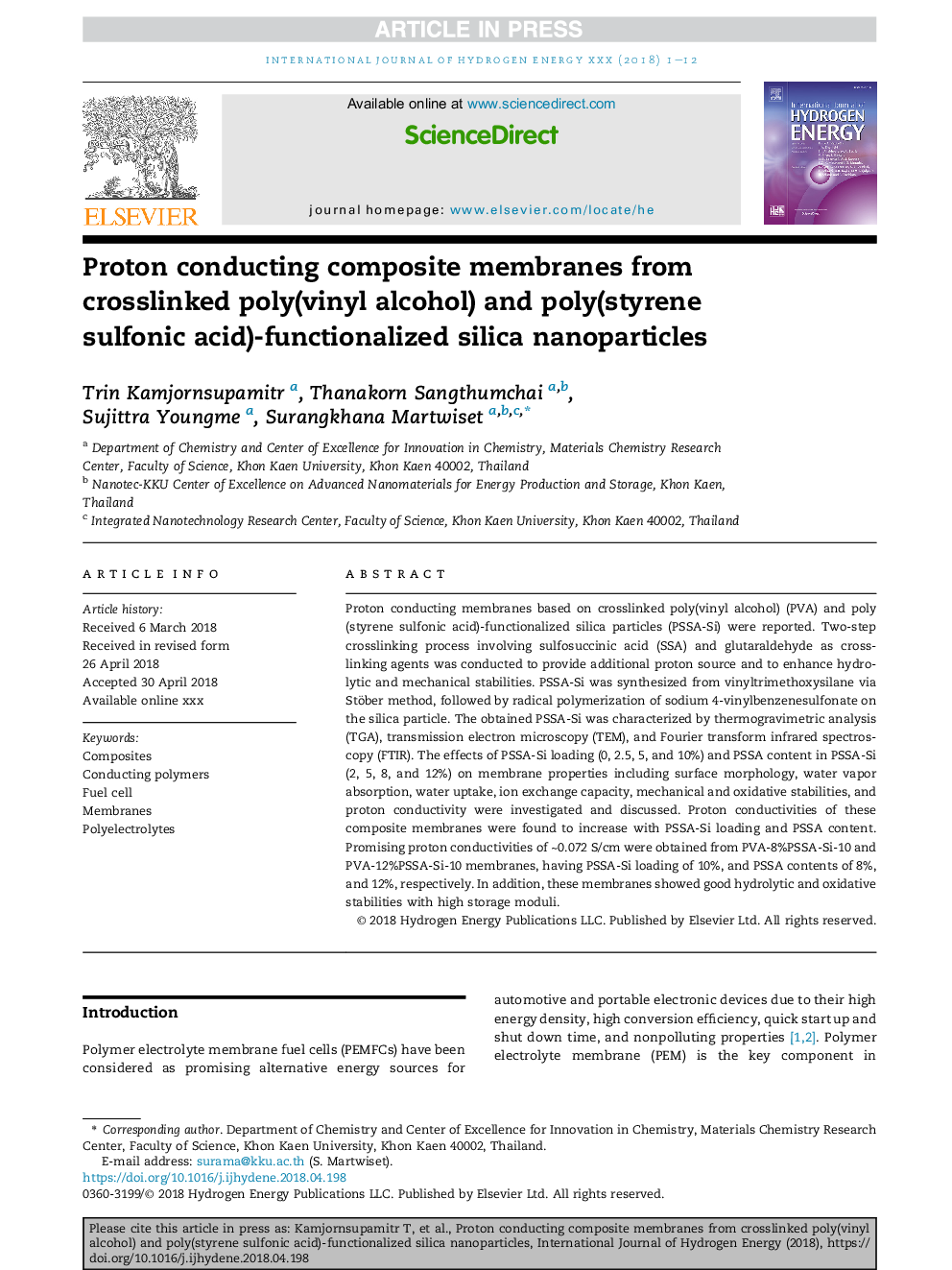| Article ID | Journal | Published Year | Pages | File Type |
|---|---|---|---|---|
| 7705798 | International Journal of Hydrogen Energy | 2018 | 12 Pages |
Abstract
Proton conducting membranes based on crosslinked poly(vinyl alcohol) (PVA) and poly (styrene sulfonic acid)-functionalized silica particles (PSSA-Si) were reported. Two-step crosslinking process involving sulfosuccinic acid (SSA) and glutaraldehyde as crosslinking agents was conducted to provide additional proton source and to enhance hydrolytic and mechanical stabilities. PSSA-Si was synthesized from vinyltrimethoxysilane via Stöber method, followed by radical polymerization of sodium 4-vinylbenzenesulfonate on the silica particle. The obtained PSSA-Si was characterized by thermogravimetric analysis (TGA), transmission electron microscopy (TEM), and Fourier transform infrared spectroscopy (FTIR). The effects of PSSA-Si loading (0, 2.5, 5, and 10%) and PSSA content in PSSA-Si (2, 5, 8, and 12%) on membrane properties including surface morphology, water vapor absorption, water uptake, ion exchange capacity, mechanical and oxidative stabilities, and proton conductivity were investigated and discussed. Proton conductivities of these composite membranes were found to increase with PSSA-Si loading and PSSA content. Promising proton conductivities of â¼0.072Â S/cm were obtained from PVA-8%PSSA-Si-10 and PVA-12%PSSA-Si-10 membranes, having PSSA-Si loading of 10%, and PSSA contents of 8%, and 12%, respectively. In addition, these membranes showed good hydrolytic and oxidative stabilities with high storage moduli.
Related Topics
Physical Sciences and Engineering
Chemistry
Electrochemistry
Authors
Trin Kamjornsupamitr, Thanakorn Sangthumchai, Sujittra Youngme, Surangkhana Martwiset,
